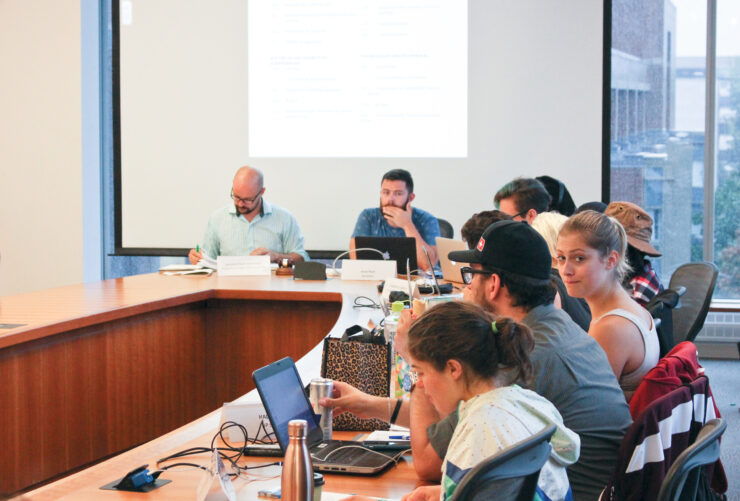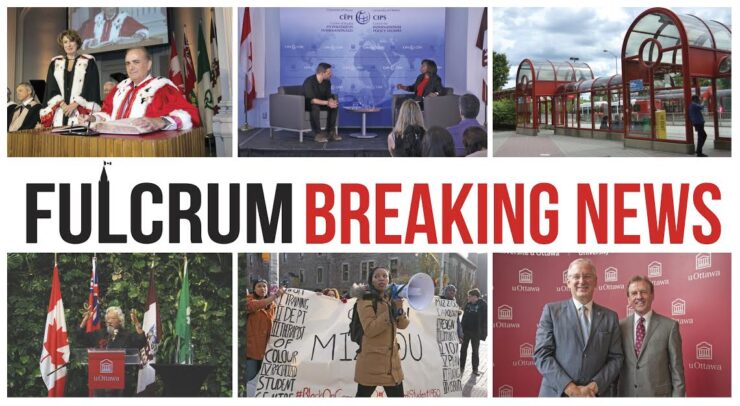The debates for the Student Federation of the University of Ottawa (SFUO) general election looked a little different this year. Instead of having members of the editorial boards of the Fulcrum and La Rotonde moderate the debates, as is tradition, this time they were moderated by SFUO president Hadi Wess and executive coordinator Vanessa Dorimain.
Sure, at first it felt a bit like being ghosted that person you’d been on a couple dates with. Wow, I thought those debates together went well, what happened? Was it something we said?
But after thinking about it, there are some pretty legitimate reasons that having the student media moderate the election debates is a better system.
So, what are the benefits of having media moderate the debates?
Impartiality, for one. Despite what some students (and American presidents) might think, reputable media outlets don’t do what they do to advance anyone’s political agenda, and the same is true with the student media. This isn’t an insinuation that having internal members of the SFUO asking questions will carry an explicit bias, but I know that as a student I would feel more comfortable that an outside party was asking the questions. It also means that the people asking the questions aren’t involved in the process, and can step back for a more objective look.
It’s true that most outsiders don’t have the same level of familiarity with how the SFUO works that insiders do. However, I can say from personal experience that people involved in student media know more than any person could possibly need (or, in some cases, want) to know about their student unions, and have heard information and input from all the sides you can think of, and a few that you can’t.
Student journalists work tirelessly day by day to gather facts and keep a watchful eye on the politics of our campuses. We know the ins and outs of our student unions, and the university administration itself. Having the campus media at the centre of elections for our student unions, by asking tough questions and ensuring that candidates are prepared for any issue that may arise if elected, is critical to the proper functioning of an open and transparent student democracy. By moderating election debates, our goal is to help the student body find those candidates whom they can place their trust in, and likewise, we expect the SFUO to place that same trust in the media, by helping us achieve that goal. When the debates are moderated by members of the federation itself, it sends across a message that these debates are a closed process, where outside scrutiny is not welcome.
In previous years, the elections office has contacted the editorial boards of the campus papers to receive the questions in advance, to screen them, likely for anything that may directly target an individual candidate. This is a valid concern, however this year, when the Fulcrum was only informed that we wouldn’t be moderating the debates as usual two days before they began To an extent, excluding the media from the debates breaks the trust between the SFUO and the campus as mentioned earlier.
Outside of the U of O, other student unions look to their campus media to moderate debates as well, like the Eyeopener does at Ryerson. Even looking outside of student politics, you see the trend. National debates aren’t hosted by a government agency or the civil service, but by the major news organizations.
So when it comes to SFUO elections, let’s have the involvement of the executive in moderation, just not in debate moderation.





